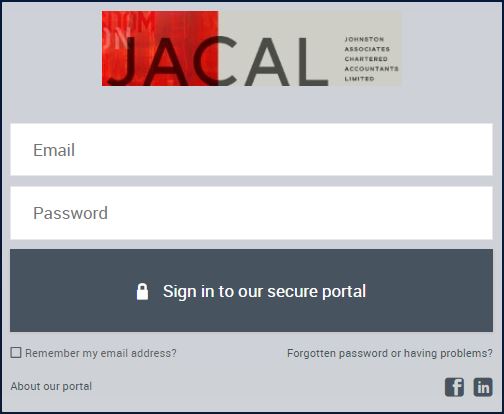AUTUMN 2019
TOPICS IN OUR NEWSLETTER THIS QUARTER
WHAT SHAPE ARE YOUR END-OF-YEAR ACCOUNTS IN?
The end of the financial year can be either stressful or a seamless part of what you do. Ideally, your end-of-year accounts will confirm what you think your business has been doing for the past 12 months.

Be a good scout to avoid end-of-year migraine
Being prepared is the key to avoiding end-of-year financial drama and stress.
- First make sure you have all the documents we’ll need, such as PAYE statements, bank statements showing interest earned, dividend statements for shares, and receipts for expenses.
- Don’t forget receipts for charitable donations.
- Look at writing off old debts. Scrap redundant or worthless assets, so you get a deduction on your books.
- Print out profit and loss, balance sheet and general ledger listing reports and store them safely.
- Have a final look at your payroll reports. You don’t have to give summaries to your staff, but if you give them Earning Certificates, they can be used to check IRD information.
- Note odometer readings on vehicles and ensure logbooks noting business and personal use, mileage and costs etc. are in order.
- Dispose of obsolete stock by the year end or write it down to its net realisable value.
- Talk to us on any planned dividend payments, as managing imputation credits will be important.
Finally, get us to work with you on reviewing your business plan and updating it for next year – and to review your accounting software.
WHAT’S NEW IN THE WORLD OF TAX
Payday filing
We have mentioned this in the past, but don’t forget payday filing for employers is compulsory from 1 April 2019. Please contact us if you need any help with complying with the new process and rules.
No more cheques for IRD
Do you send post-dated cheques for tax payments? It’s time to go digital! From now on you’ll need to use online banking to make future-dated payments as the IRD no longer accepts post-dated cheques. Plus, if you’re one to put your tax payments in the IRD’s dropboxes, you’ll now have to head to an IRD office reception area (during office hours) to do so.

Writing off bad debt? Get your ducks in a row
If you’re expecting a tax break from writing off bad debt, you may also expect to hear from the IRD asking you to prove the debt is, in fact, bad. A new ruling means the IRD could request evidence of any steps you took to recover the debt (before writing it off) and proof there is no reasonable likelihood the debt will be paid. So, get your paperwork in order!
IT’S TIME TO GEAR UP FOR PAYDAY FILING
Hundreds of Kiwi business owners are enjoying the benefits of payday filing – are you?
If not, you’ll need to be by 1 April when payday filing becomes compulsory.
Now’s the time to work out how you’re going to integrate it into your payroll processes and save time on your tax obligations.
Payday filing means you need to:
- File employment information every payday instead of an Employer monthly schedule (IR348)

- Provide new and departing employees’ address information, as well as their date of birth – if they have provided it to you
- File electronically (from payday compatible software or through myIR) if your annual PAYE/ESCT is $50,000 or more
Remember, the due date for payment remains the same at the 20th of the month
(or 5th and 20th of the month for twice-monthly filers).
How do I payday file?
There are three ways to file electronically – direct from payroll software, file upload from myIR or onscreen via myIR.
How do I shift over to payday filing?
- Review your payroll processes and plan and schedule when to shift
- Ask your software provider when they’ll have payday filing compatible software (Xero and MYOB already do)
- If you’re using myIR to file, let the IRD know you’re switching to payday filing in myIR
Need to know how payday filing works for schedular payments, shadow payrolls, employee share schemes and holiday pays? Let us know and we’ll talk you through it
TAX WORKING GROUP – FINAL REPORT
Introduction
The Tax Working Group’s recommended taxation of capital gains has been widely scrutinised in the media. In this newsletter we provide a brief overview.
Overview
The Government has signalled that it will respond to the report in April. They have also signalled that they intend to table draft legislation containing their CGT proposals prior to the 2020 general election in order that the detail of those proposals is available to the public when they go to the polling booths for those elections. We expect the Government will pick some only of the Group’s recommendations, the key elements of which are:
- the Group (in majority, with 3 members dissenting) propose an extension of the tax system to a broad range of capital assets including land, shares and intangibles but excluding the family home and a small list of other items, for example jewellery and artworks;
- those capital assets are to be taxed at the same rate as gains from sale of revenue account assets, ie there is no discounted capital gain tax rate and no relief for gains that merely reflect inflation;
- both existing and future acquired assets will be caught; existing assets will need to be valued in order that the pre-implementation asset gains are carved out. This will ensure there is no retrospective application of the CGT regime;
- taxpayers will have 5 years to value those assets;
- tax is to be triggered on a realisation basis, ie when the assets are sold, and not on an accrued basis (excepting shares in foreign companies which will for the most part continue to be governed by the FDR method and financial arrangements which will continue to be governed by the FA/spreading rules);
- rollover relief will apply in circumstances of death, for relationship property transfers and intra group transactions (for wholly owned groups)
TAKE NOTE! MINIMUM WAGE GLIDES CLOSER TO $20

More than 200,000 New Zealanders and their families will benefit from the minimum wage going up to $17.70 an hour on 1 April 2019 — an increase of $1.20. The starting-out and training minimum wage rates will increase from $13.20 to $14.16 per hour (remaining at 80% of the adult minimum wage) and the Government has set indicative rates of $18.90 from 1 April 2020 and $20 from 1 April 2021
CHANGES TO OUR BILLING FOR AUCKLAND OFFICE CLIENTS
We are making some changes to our billing process for streamlining and efficiency reasons. These changes apply to most software subscriptions, and some GST clients.
Software subscription charges such as Xero, BankLink, MYOB, which we currently pay the suppliers monthly on your behalf, we will now in most cases, invoice you quarterly in arrears, for charges incurred from 1st January 2019. So the first quarterly subscriptions invoice will be issued in March 2019, covering charges from January to March 2019.
Generally, GST work will be invoiced in the month the return is due. For example, the GST period ending January 2019 will be invoiced in February
ANNUAL TERMS OF ENGAGEMENT – COMING SOON VIA OUR ONLINE PORTAL
To get the ball rolling for the new financial year, around the end of March we will be sending out the annual terms of engagement document to clients. As required by regulation, this document re-affirms our engagement for the forthcoming year.
We will again be publishing this document to clients via our secure online portal.
Over the coming weeks you will receive an email notifying that a document has been published to your portal account. Instructions will be included on what to do

FOLLOW US ON SOCIAL MEDIA
Johnston Associates has decided to provide more regular information via social media channels – namely Facebook and LinkedIn. We will continue to publish our quarterly newsletter, but you will find more regular and timely information through these channels.
So choose your preferred outlet by clicking on one of the buttons below, and don’t forget to follow us!
IMPORTANT PAYMENT DATES TO REMEMBER

MARCH 28th 2019
- Your GST return and payment are due for the taxable period ending February 2019
MARCH 31st 2019
- Final date for ratio options provisional tax application
- Student loan repayments due for overseas-based borrowers
APRIL 7th 2019
- Do you have an income tax, Working for Families Tax Credits, or student loan bill to pay?
APRIL 30th 2019
- Received your tax credit claim form for donations? If you haven’t received a form by 30 April 2019, or you haven’t claimed before, you can download an IR526 form on the Inland Revenue Website
MAY 7th 2019
- Provisional tax instalments
The third instalment of your provisional tax is due on 7 May if you:
have a March balance date, and
use the standard or estimation option to calculate your provisional tax payments - Student loan interim payments
The interim payments you make will be offset against your repayment - GST – Your GST returns and payments are due for the taxable period ending 31 March 2019
MAY 28th 2019
- Your GST returns and payments are due for the taxable period ending 30 April 2019
- Provisional tax for monthly GST filers using the accounting income method (AIM) is due

Disclaimer – While all care has been taken, Johnston Associates Chartered Accountants Ltd and its staff accept no liability for the content of this newsletter; always see your professional advisor before taking any action that you are unsure about.




